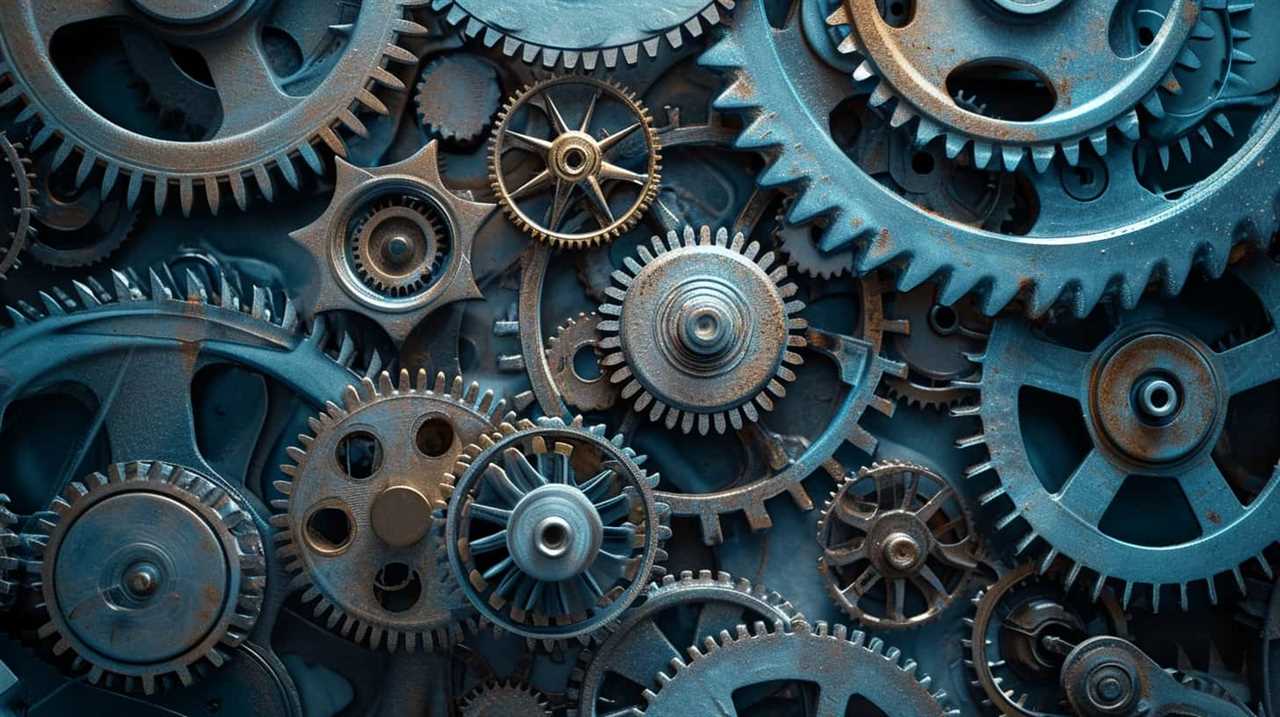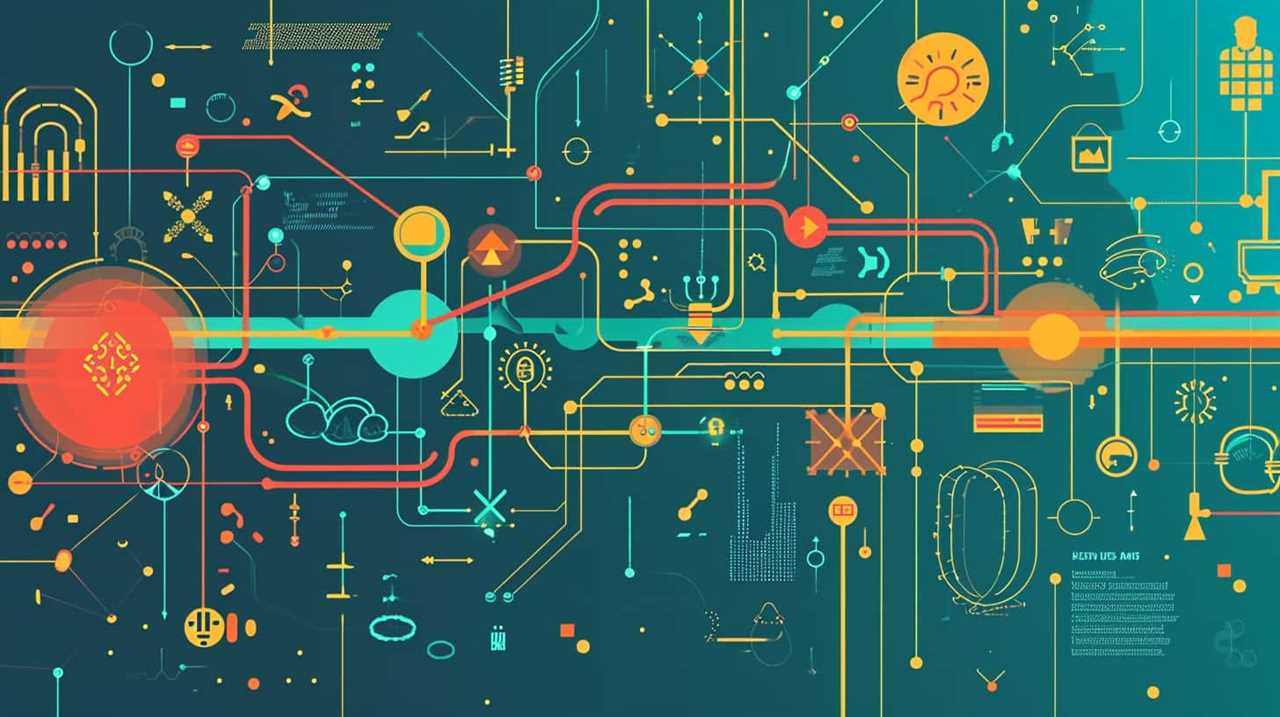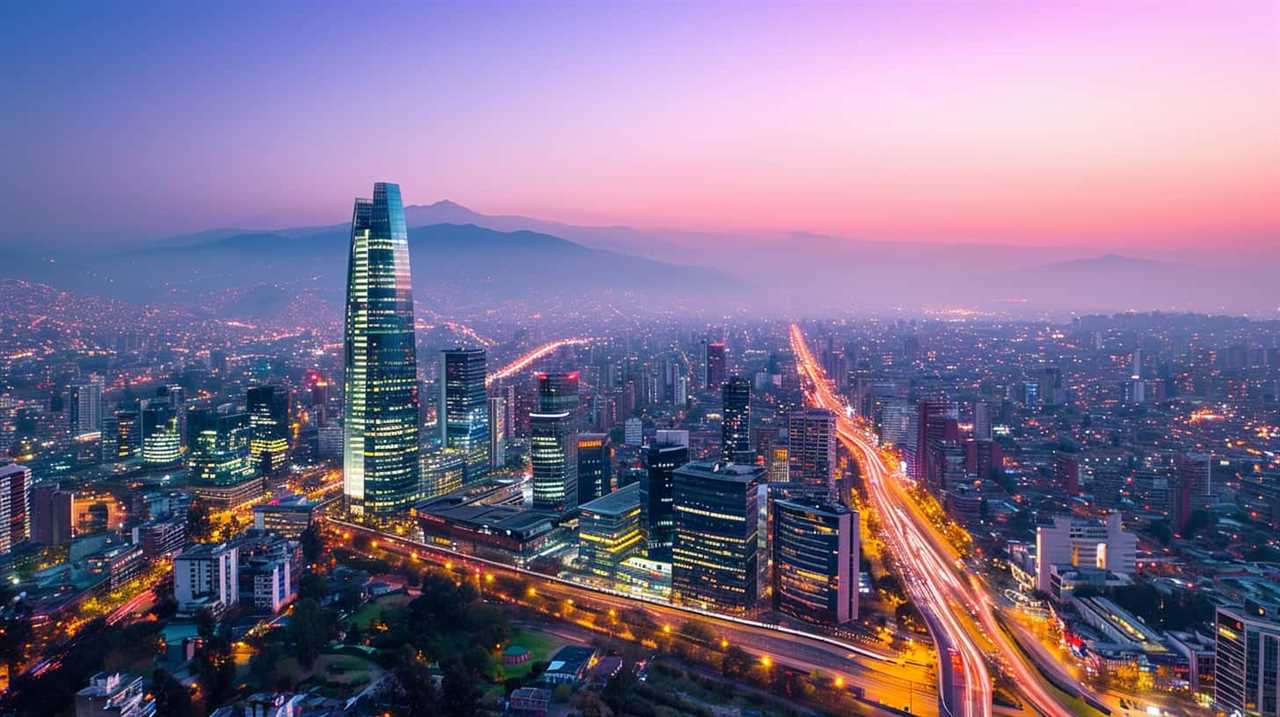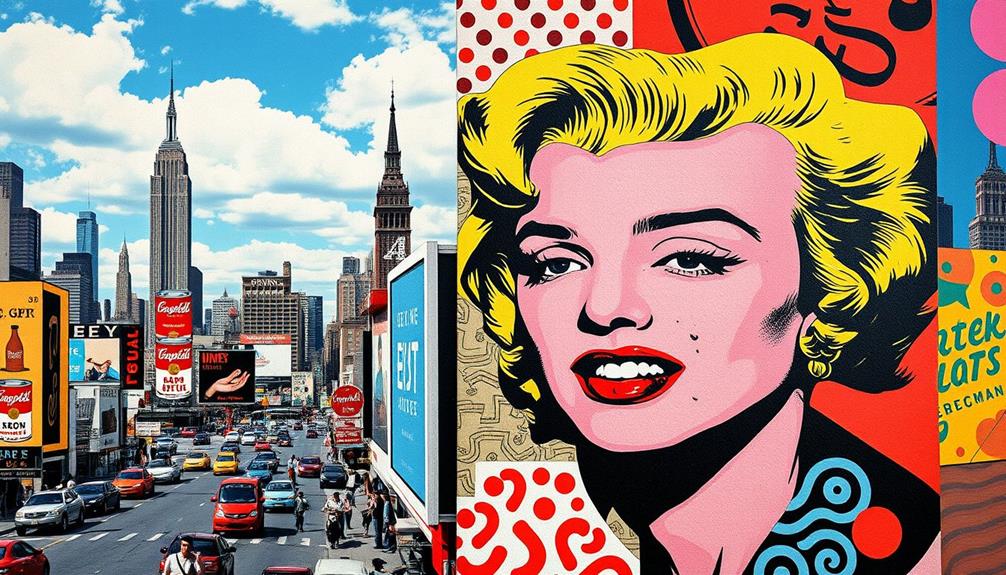Have you ever pondered the complex network that keeps society intact?
In our exploration of the economic class, we delve into the profound insights of Karl Marx. Like a skilled weaver, Marx intricately unraveled the threads that form the fabric of society, revealing the hidden dynamics of economic class.
Through his lens, we come to understand the origin of class, the role of capitalism in its formation, and the exploitation faced by the proletariat. Marx’s analysis goes beyond mere observation, as he boldly proclaims the inevitability of class struggle and envisions a future where the bourgeoisie is overthrown.
Join us on this intellectual journey as we unravel the layers of Marx’s ideas, paving the way for innovation and a deeper understanding of our social structure.
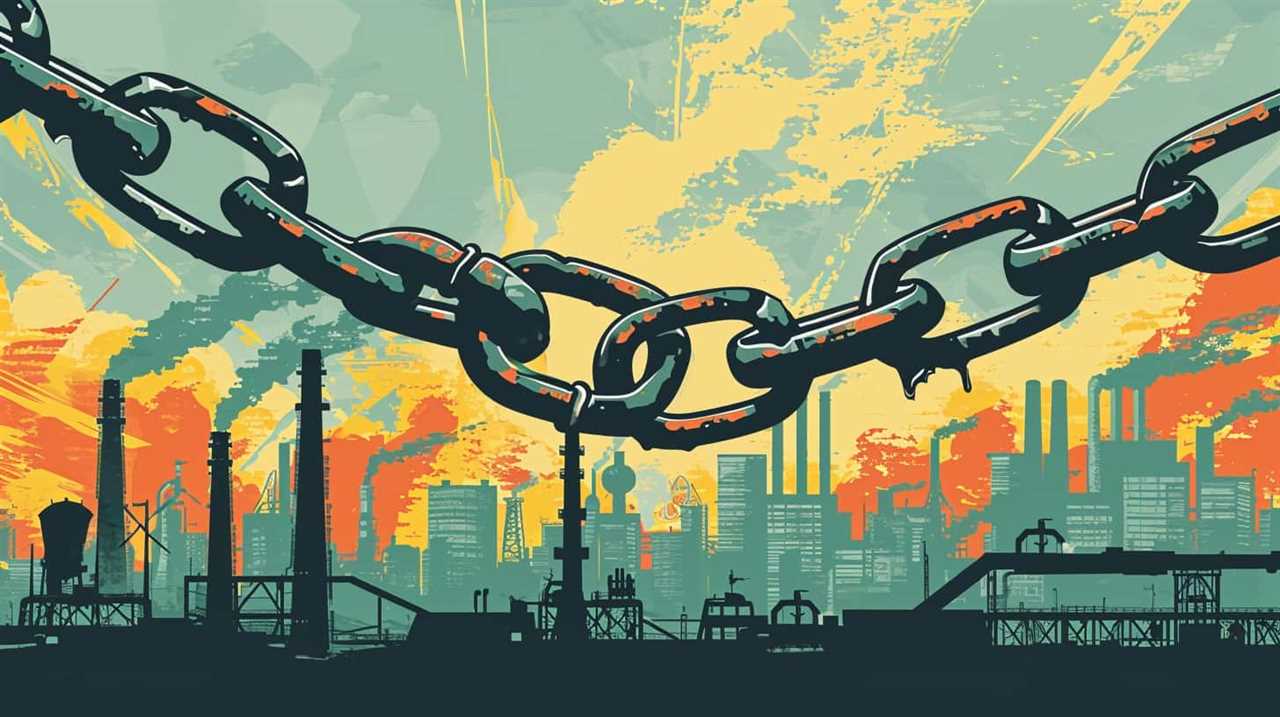
Key Takeaways
- Feudalism played a significant role in the formation of economic class.
- Capitalism perpetuates the exploitation of the proletariat by the bourgeoisie.
- Class struggle is an inevitable aspect of society, arising from the contradictions of the capitalist system.
- Marx envisions a future where the proletariat overthrows the bourgeoisie to create a classless society based on equality and fair distribution of resources.
The Origin of Economic Class
In our study of Marx’s views on economic class, we delve into the origins of this social division. One of the key factors that played a significant role in the formation of economic class was feudalism. Feudalism, a hierarchical social structure prevalent in medieval Europe, divided society into distinct classes based on land ownership and labor obligations. The ruling class, composed of feudal lords, owned vast estates and exerted control over the lower classes, who were predominantly peasants. This feudal system created a clear division between the privileged few and the working masses, setting the stage for the emergence of economic class.
However, it was the impact of industrialization that truly transformed the dynamics of economic class. The advent of industrialization brought about a radical shift in the economic landscape. The rise of factories and mass production resulted in the concentration of wealth in the hands of a new bourgeoisie class, composed of factory owners and capitalists. As industrialization advanced, the bourgeoisie amassed greater control over the means of production, while the working class, now known as the proletariat, faced worsening working conditions and exploitation.
The transformation of economic class through industrialization underscores the dynamic nature of class formation. It highlights the influence of historical shifts and changes in economic systems on the social hierarchy. By understanding the role of feudalism in class formation and the impact of industrialization, we gain valuable insights into the origins of economic class and the need for innovation in addressing its challenges.
The Role of Capitalism in Class Formation
As we delve deeper into Marx’s analysis of economic class, it becomes evident that capitalism played a crucial role in the formation and perpetuation of social divisions. The role of the bourgeoisie, the capitalist class, is central to Marx’s critique of capitalism and its impact on class formation. Here are three key points to consider:

- Exploitation and Accumulation: Under capitalism, the bourgeoisie, who own the means of production, exploit the labor of the proletariat, the working class, in order to accumulate wealth. This process leads to the concentration of capital in the hands of the bourgeoisie, widening the gap between the haves and the have-nots.
- Class Consciousness: Capitalism fosters a sense of class consciousness among the proletariat. Through their shared experience of exploitation, the working class becomes aware of their common interests and develops a collective identity. This awareness lays the foundation for potential class struggle against the bourgeoisie.
- Reproduction of Class Relations: Capitalism perpetuates class divisions through the reproduction of class relations. The bourgeoisie, through their control of economic resources, are able to maintain their social and economic dominance over the proletariat. This perpetuation of inequality ensures the continued existence of distinct social classes.
The Exploitation of the Proletariat
Continuing from our analysis of the role of capitalism in class formation, let’s now delve into the exploitation of the proletariat by the bourgeoisie.
The exploitation issues faced by the working class have been at the core of Marxist critique for centuries. Karl Marx argued that under capitalism, the bourgeoisie, or the ruling capitalist class, systematically exploits the proletariat, or the working class, for their own economic gain. This exploitation is rooted in the capitalist mode of production, where the bourgeoisie owns the means of production and controls the labor of the proletariat.
Marx highlighted that the bourgeoisie extracts surplus value from the labor of the proletariat, paying them wages that are lower than the value they produce. This surplus value is the foundation of capitalist profits, enabling the bourgeoisie to accumulate wealth and maintain their position of power. This process perpetuates the class divide and exacerbates inequality in society.
Worker’s rights play a crucial role in addressing the exploitation of the proletariat. Marx argued that the struggle for better wages, shorter working hours, and improved working conditions are important battles in the wider class struggle. By organizing and demanding fair treatment, workers can challenge the exploitative nature of capitalism and strive for a more equitable society.

The Inevitability of Class Struggle
Class struggle is an inevitable aspect of society, as Karl Marx argued in his analysis of economic class. Throughout history, numerous examples of class struggle have demonstrated the perpetual conflict between the ruling class and the working class. Marx’s Marxist analysis of social inequality provides insights into the causes and consequences of class struggle.
To paint a picture for our audience, here are three key historical examples of class struggle:
- The French Revolution: The uprising of the lower classes against the aristocracy, fueled by economic disparities and social injustices, led to the overthrow of the monarchy and the establishment of a more egalitarian society.
- The Russian Revolution: The Bolshevik revolutionaries, led by Lenin, mobilized the proletariat against the bourgeoisie, resulting in the collapse of the Tsarist regime and the formation of the Soviet Union.
- The Civil Rights Movement: African Americans in the United States fought against systemic racism and discrimination, demanding equal rights and opportunities, which led to significant social and legislative changes.
Marx’s analysis of social inequality emphasizes the exploitative nature of the capitalist system, where the bourgeoisie, who control the means of production, exploit the proletariat for their own economic gain. This inherent contradiction between the ruling class and the working class inevitably leads to class struggle, as the oppressed seek to overthrow their oppressors and establish a more equitable society.
The Overthrow of the Bourgeoisie
Examining historical examples of class struggle, we witness the eventual overthrow of the bourgeoisie by the oppressed working class. Throughout history, there have been numerous instances where the working class has risen up against their bourgeois oppressors, leading to revolutionary action and the ultimate downfall of the ruling class.

One such example is the Russian Revolution of 1917, where the working class, led by the Bolsheviks, seized power from the bourgeoisie and established a socialist state. This uprising was fueled by the immense inequality and exploitation experienced by the proletariat under the capitalist system. The working class, driven by their desire for a fair and just society, organized themselves and took decisive action to overthrow their oppressors.
Another example is the Chinese Communist Revolution, led by Mao Zedong, which culminated in the overthrow of the bourgeoisie and the establishment of the People’s Republic of China. The working class in China, similarly driven by their desire for a better future, engaged in a protracted struggle against the ruling class, ultimately succeeding in their revolutionary aspirations.
These historical instances of working class uprising demonstrate the power of collective action and the potential for the oppressed to overthrow their oppressors. They serve as reminders that change is possible and that the working class, when united and mobilized, can challenge and dismantle the oppressive structures of capitalism.
Transitioning into the subsequent section about ‘the vision of a classless society’, it’s important to note that Marx believed that the overthrow of the bourgeoisie was only the first step towards achieving a truly classless society.
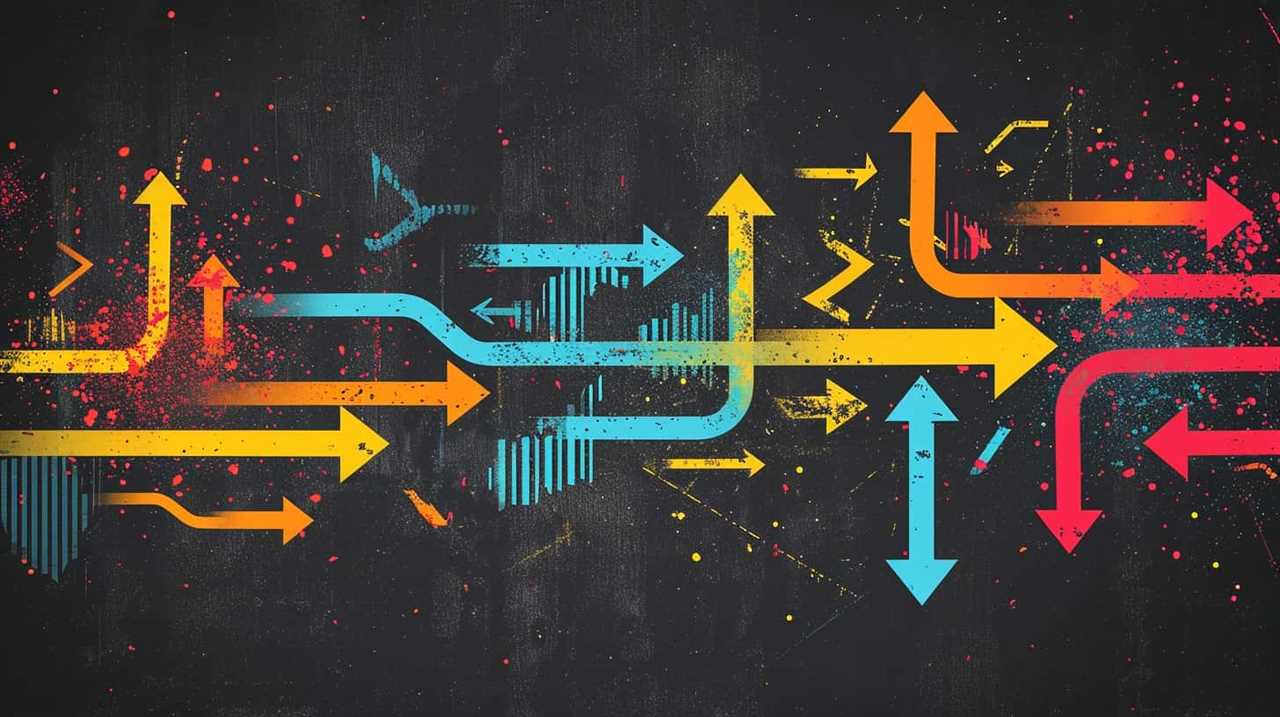
The Vision of a Classless Society
Marx’s vision of a classless society is a central tenet of his theory. It represents a radical departure from the hierarchical structure of capitalist societies, where the bourgeoisie exploits the proletariat.
The concept of a classless society isn’t only historically relevant, but it also raises important questions about how to achieve such a society and the potential implications for social, economic, and political systems.
Marx’s Classless Society
In exploring the vision of a classless society, we can understand Marx’s perspective on the eradication of social and economic divisions. Marx believed that a classless society was the ultimate goal of his revolutionary theory. His solution to achieve this vision was the overthrow of the capitalist system, which he saw as the root cause of class exploitation and inequality.
Here are three key points that paint a picture of Marx’s classless society:
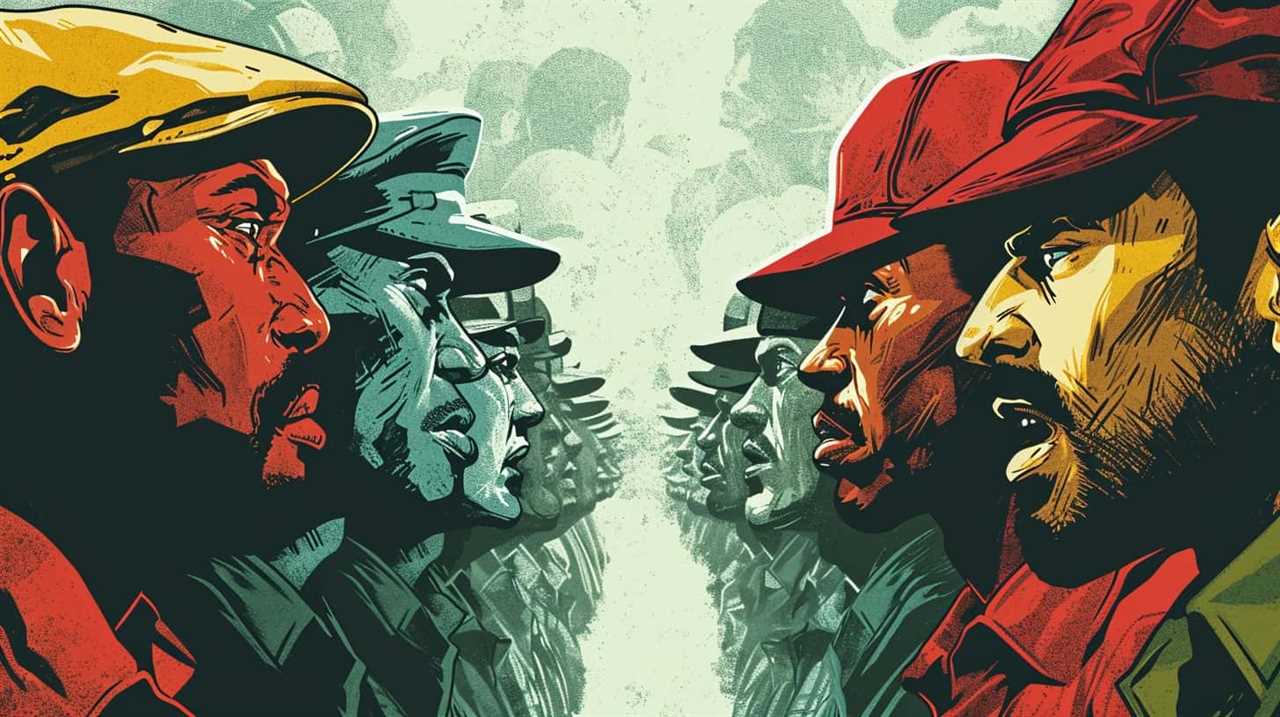
- Abolition of private property: Marx envisioned a society where all means of production are collectively owned, eliminating the distinction between the bourgeoisie and the proletariat.
- Equal distribution of wealth: In a classless society, Marx proposed that wealth would be distributed based on need, ensuring that everyone’s basic needs are met.
- End of alienation and exploitation: Marx believed that a classless society would eliminate the alienation and exploitation experienced by the working class under capitalism, allowing individuals to fully develop their potential.
Understanding Marx’s vision of a classless society provides insights into the relevance of classlessness in contemporary discussions on social and economic justice.
Relevance of Classlessness
From our perspective, achieving a classless society holds significant relevance in contemporary discussions on social and economic justice. Marx’s vision of a classless society aimed to eliminate the exploitation and inequality inherent in capitalist systems.
However, we must critically examine the concept of classlessness and its practical implications. One critique of classlessness is that it ignores the inherent diversity among individuals and their varying abilities, skills, and contributions.
Additionally, achieving classlessness faces several challenges, such as the concentration of wealth and power in the hands of a few, systemic biases, and the perpetuation of social hierarchies. These challenges necessitate innovative approaches and policies that address structural inequalities and empower marginalized communities.
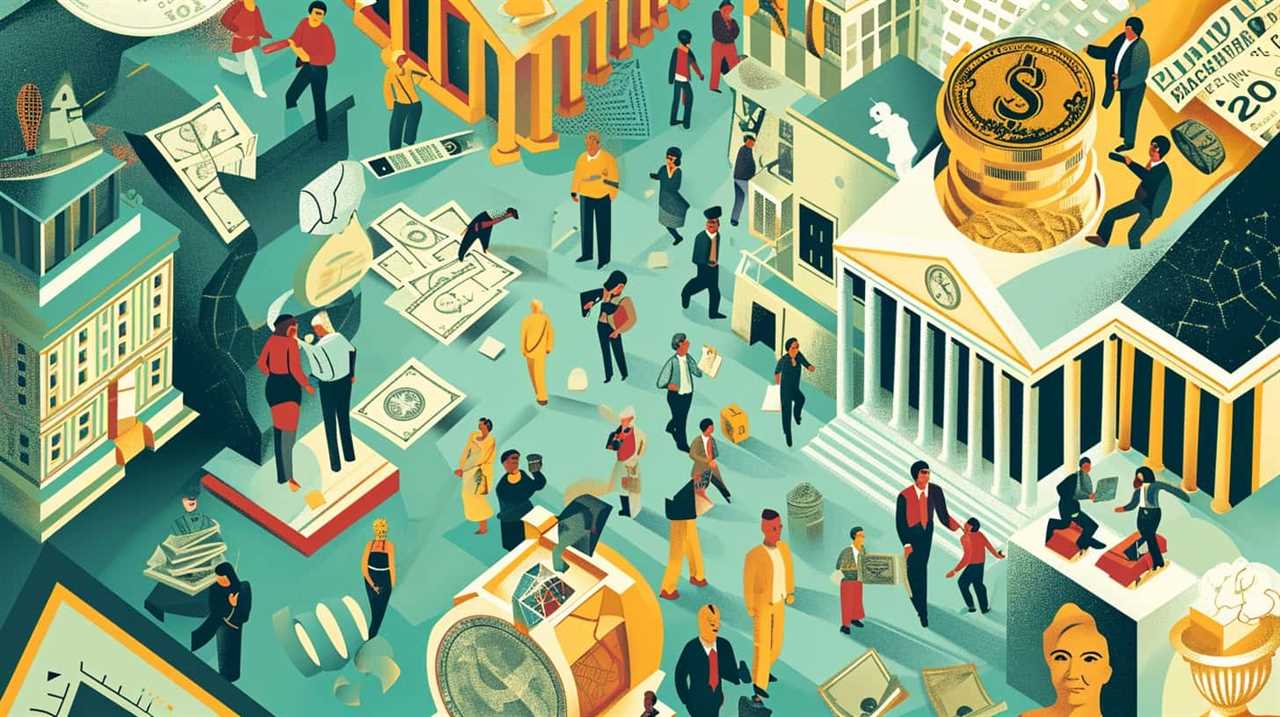
Transitioning to a classless society requires not only a reimagining of economic systems but also a deep commitment to social justice and equality.
Achieving Classless Society?
To achieve a classless society, we must address the inherent challenges and complexities that arise from diverse abilities, skills, and contributions among individuals. While the vision of a classless society has been a central tenet of socialist revolution, its practical implementation poses significant obstacles.
Here are three key considerations:
- Redistribution of Resources: A classless society requires the redistribution of wealth and resources to ensure equal opportunities for all. This entails overcoming resistance from those who hold power and influence.
- Eliminating Hierarchies: Hierarchies based on social, economic, and political power perpetuate class divisions. Overcoming these hierarchies involves challenging existing systems of authority and promoting inclusivity and equal participation.
- Education and Awareness: Achieving a classless society requires educating individuals about the benefits of equality and the drawbacks of class divisions. It necessitates fostering awareness and critical thinking to challenge ingrained social norms and biases.
Addressing these challenges is crucial for the realization of a classless society, as envisioned by Marx and other proponents of socialist revolution. It requires a collective effort to dismantle existing power structures and promote a society that values fairness, equality, and innovation.

Frequently Asked Questions
What Is the Historical Context in Which Marx Developed His Theories on Economic Class?
In analyzing Marx’s historical context and his influence on socialism, it is crucial to consider the societal conditions that shaped his theories on economic class. This understanding allows for a comprehensive examination of Marx’s contributions to economic and social thought.
How Does Marx Define the Bourgeoisie and the Proletariat?
Marx’s definition of the bourgeoisie and proletariat is a groundbreaking analysis of the impact of economic class on society. It unveils the power dynamics and exploitation inherent in capitalism, igniting a revolution of thought and action.
What Are Some Examples of Class Struggle in Modern Society?
Examples of class struggle in modern society can be seen in the wage gap, exploitation of workers, and unequal access to resources. These inequalities have a profound impact on individuals and perpetuate systemic oppression.
Did Marx Believe That All Forms of Capitalism Would Inevitably Lead to Class Struggle?
Yes, Marx believed that all forms of capitalism would inevitably lead to class struggle. He argued that capitalism inherently creates a division between the bourgeoisie and the proletariat, resulting in an ongoing struggle for power and economic equality.

What Were Some Criticisms of Marx’s Theory of Economic Class?
Some criticisms of Marx’s theory of economic class include its cultural and political implications. It has been argued that his focus on class struggle ignores other important factors in society and fails to account for innovation and change.
Conclusion
In conclusion, Marx’s analysis of economic class is a powerful critique of capitalism. He argues that the bourgeoisie’s exploitation of the proletariat is inevitable and oppressive.
Through his historical analysis, Marx envisions a classless society where the working class triumphs over the bourgeoisie. His ideas evoke a sense of urgency and frustration, highlighting the need for radical change in our economic system.
Marx’s insights continue to resonate today, reminding us of the ongoing struggle for equality and justice.

Lauren’s talent in writing is matched by her passion for storytelling. Her love for books and deep understanding of culture and entertainment add a distinct flavor to her work. As our media and press contact, Lauren skillfully bridges the gap between afterQuotes and the broader media landscape, bringing our message to a wider audience.



